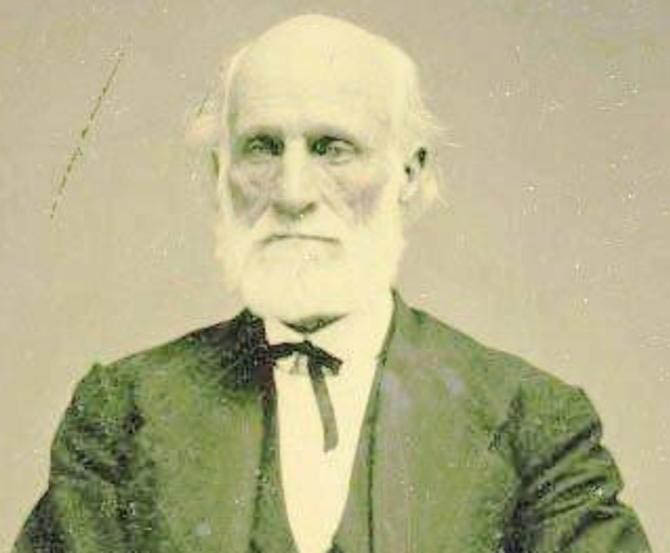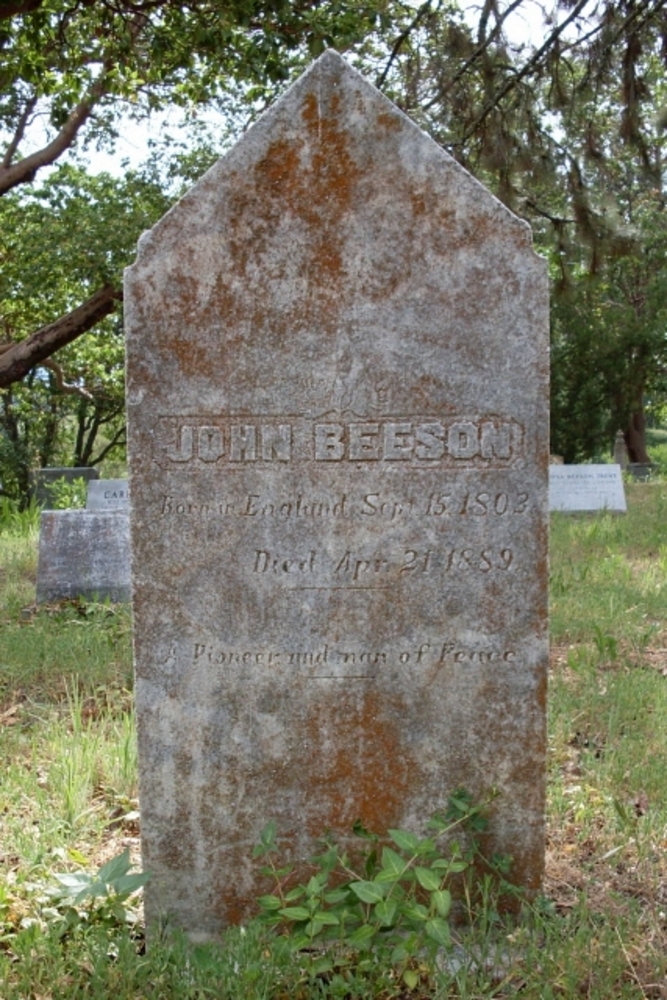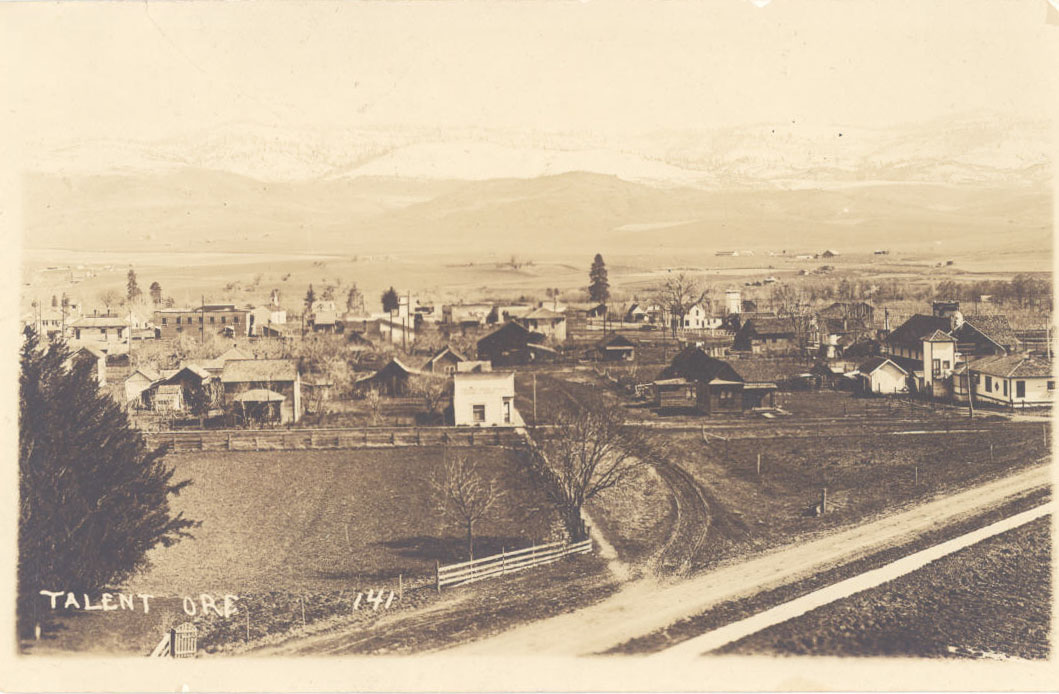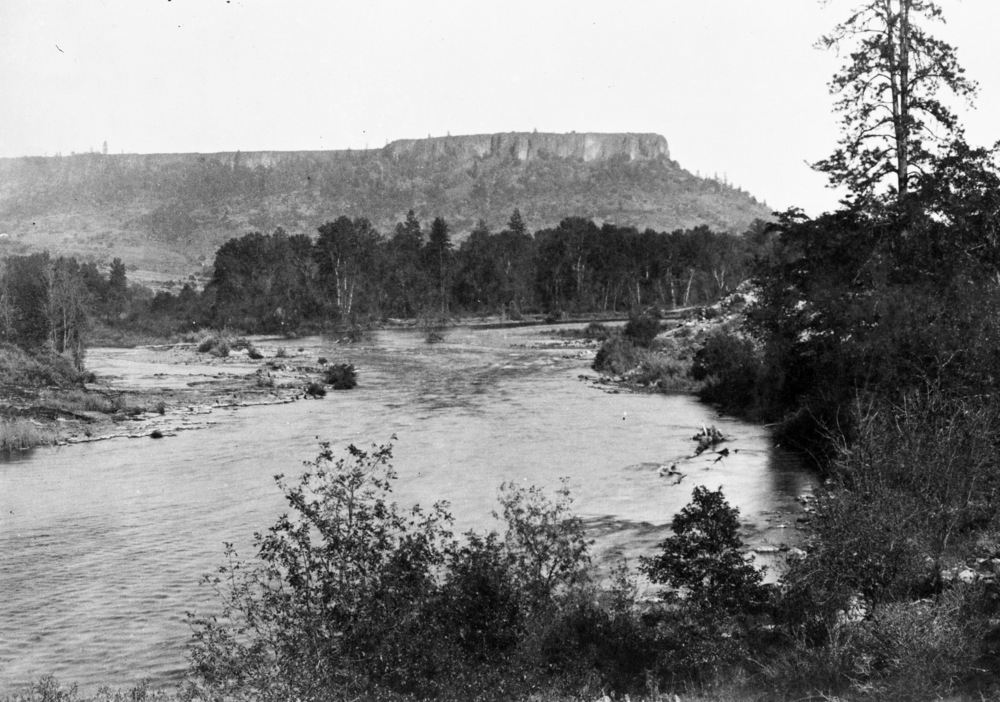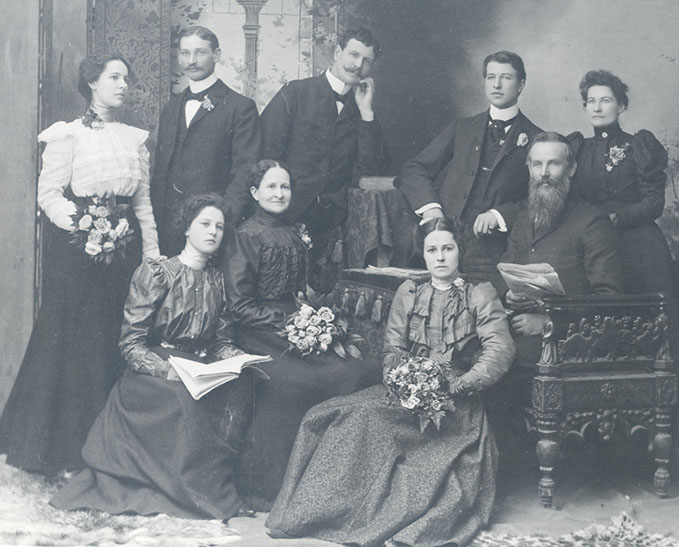John Beeson had been in Oregon only three years, but his outrage at the treatment of Native Americans by whites led him to become a strident advocate for Indian rights. In May 1856, he had so angered a majority of whites in the Rogue River Valley by advocating for humanitarian treatment of local Indians that he fled his home.
Born in England in 1803, Beeson immigrated to the U.S. with his wife Ann in 1828. They eventually settled in Illinois, where he farmed, proselytized his Methodist faith, and harbored fleeing slaves on the Underground Railroad. In 1853, the Beesons migrated to Oregon, lured by the Donation Land Act’s offer of free land. John Beeson recorded his impressions of Native people during his journey to Oregon, noting their “sublimity and ideality” and proposing that they be elevated “to accept civilized life.”
Beeson was incensed by those whites who threatened Indian families, destroyed their property, and committed random killings. Not unlike other reformers of his era, he considered Indians uncivilized but nevertheless demanded that whites recognize their humanity and act accordingly.
In Oregon, Beeson became increasingly critical of settlers who had ignored provisions of the September 1853 Table Rock Treaty, which had exchanged cession of Indian lands for a reservation and annuities. Whites trespassed on the reservation and terrorized Indian families, who complained to federal authorities. In the winter and spring of 1856, Beeson spoke publicly against Oregon’s Indian policy.
Beeson fled his homestead on May 25, 1856, under threat of death and traveled through the Willamette Valley, to San Francisco, and then to New York by way of Panama. He published an important article in the June 28, 1856, issue of the Argus, a widely distributed newspaper in Oregon City. He admonished his readers to deal fairly with Indians to “do good, love truth, be just and fair to ALL, exalt the RIGHT, though every ism fall.”
By late 1856, Beeson had relocated to New York, where he lectured on Indian rights and in 1857 wrote A Plea for the Indians, arguably the most eloquent defense of Oregon Indians published in the nineteenth century. He worked for the Indian Aid Association, based in Philadelphia, and in 1859 established The Calumet to advocate for Indian rights. The newspaper was based in New York, and only one issue was published.
After the Civil War, Beeson continued his humanitarian advocacy by promoting spiritualism and arguing for a world government. He returned to Oregon in January 1865 to rejoin his wife (who died in June 1866) and his son Welborn. He attempted another trip east in 1887, but at his advanced age he only made it as far as Portland before Welborn brought him back to the family's Wagner Creek homestead. John Beeson died in 1889.
-
![]()
John Beeson.
Courtesy Talent Historical Society
-
Grave marker of John Beeson (shown) and Ann Beeson (reverse) in Stearns Cemetery, Talent.
Related Entries
-
![Beeson-Robison Ditch]()
Beeson-Robison Ditch
Located south of Talent, in southwest Oregon, the Beeson-Robison Irriga…
-
![Council of Table Rock]()
Council of Table Rock
The 1853 Council of Table Rock negotiated a peace treaty between repres…
-
![Talent]()
Talent
Once called Wagner Creek, Talent is located in southwestern Oregon betw…
Related Historical Records
Map This on the Oregon History WayFinder
The Oregon History Wayfinder is an interactive map that identifies significant places, people, and events in Oregon history.
Further Reading
"Address to the Citizens of Rogue River Valley," in Stephen Dow Beckham, ed., Oregon Indians, 162.
Beeson, John. A Plea for the Indians (NY, 1857), 11.
Norwood, Frederick A. "Two Contrasting Views of the Indians: Methodist Involvement in the Indian Troubles in Oregon and Washington," Church History, vol. 49 (June 1980): 178-87.
Schwartz, E.A. The Rogue River Indian War and its Aftermath, 1850-1980. Norman: University of Oklahoma Press, 1997.

